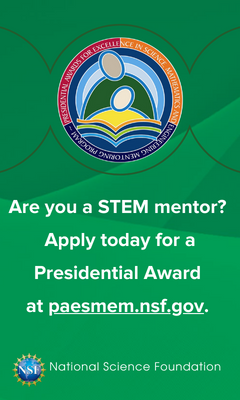Last December, the National Quantum Initiative Centers Summit was held in Washington, D.C. Participants discussed the most pressing scientific and workforce challenges affecting quantum information science (QIS) and the benefits for all of society.

One of the roundtable discussions centered on the mechanisms for achieving an inclusive workforce and how best to broaden participation from traditionally underrepresented communities in STEM.
“From magnetic resonance imaging (MRI) that improves health and saves lives, to the global positioning systems (GPS) that have revolutionized how we move in the world, quantum science and technology has already yielded major benefits to society," said Dr. Alondra Nelson in her opening remarks.
As deputy director for science and society for the White House Office of Science and Technology Policy (OSTP). Nelson stressed that an inclusive approach to this field's development would include broadening access to educational and employment opportunities.
During back-to-school season in the fall, the University of Washington announced the Graduate Certificate in Quantum Information Science and Engineering. According to UW Electrical & Computer Engineering News, the program is directed by Kai-Mei Fu, who is the Virginia and Prentice Bloedel Professor of Physics and Electrical and Computer Engineering at the University of Washington.
The Certificate can be completed concurrently with a master’s or doctoral degree, and it prepares students for careers and leadership roles in fields related to the development of quantum-enabled technologies.
“The people who tend to be drawn to this program are students who have been hearing about quantum information, realize the impact scalable quantum computing systems can have, and want to understand how their discipline can help make this impact a reality,” Fu told UW ECE News. “If you want to make a difference in this field, then you need a solid base. And if you want to get that base, you should get the Certificate.”
This week, the Washington Technology Industry Association (WTIA) released the Quantum Information Sciences (QIS) in Washington State study. Prepared by Moonbeam, the report said the state must prioritize programming to support minorities, women, and students to build a more diverse workforce.
"Potential employers need really good electrical engineers, computer scientists, chemists, and physicists that understand quantum information science and engineering,” Fu said in November. “Based on that knowledge, it became clear to me and my colleagues that a certificate program that could augment a graduate-level degree and demonstrate expertise connected to the individual’s primary research focus would best serve our students.”
In January 2022, WTIA was awarded $550,000 from the State of Washington's Innovation Cluster Accelerator to enable the development of an Advanced Technology Cluster to drive private investment, job creation, and innovation throughout the state.
"The goal of the Northwest Quantum Nexus [NQN] is to advance Quantum Information Sciences research and develop a QIS-trained workforce," said Krysta Svore, a Distinguished Engineer and VP of Advanced Quantum Development at Microsoft. "This report from WTIA and Moonbeam gives credence to our goals and demonstrates Washington's progress and potential in increasing the visibility of QIS research and accelerating collaboration statewide."
Dr. Svore recently received a Presidental appointment to the National Quantum Initiative Advisory Committee (NQIAC). She currently serves on the Advanced Scientific Computing Advisory Committee at the Department of Energy, advising numerous quantum centers and initiatives globally.
The NQIAC provides advice and guidance to the President, the Secretary of Energy, the National Science and Technology Council Subcommittee on Quantum Information Science, the National Quantum Initiative program, and trends and developments in quantum information science and technology.
Other appointees to the National Quantum Initiative Advisory Committee include:
Dr. Nadya Mason, the Rosalyn S. Yalow Professor of Physics at the University of Illinois at Urbana-Champaign. Her research focuses on the electronic properties of small-scale materials relevant to applications involving nano-scale and quantum computing elements.
Dr. Jinliu Wang currently serves as the Executive Vice President for Research, Innovation, and Knowledge and as a professor in the Department of Materials Science and Engineering at The Ohio State University. Dr. Wang plays a lead role in expanding the University’s research, creative expression, and scholarship, accelerating technology commercialization, stimulating entrepreneurship, and building strategic partnerships.

